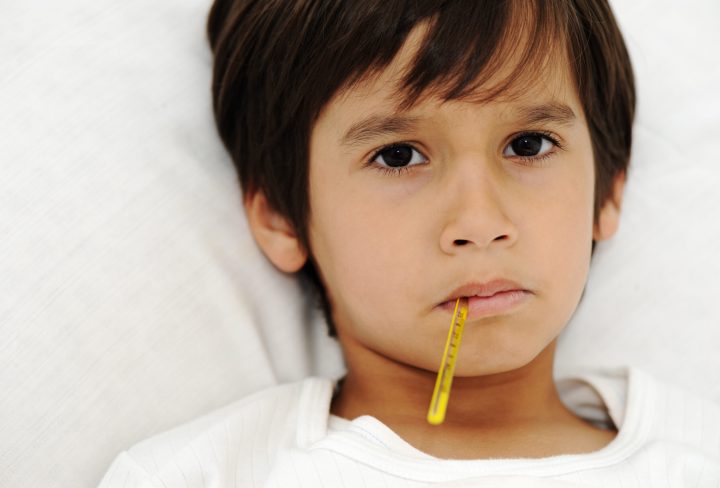Mumps can sound alarming, yet it’s simply a viral illness targeting the salivary glands. In recent years, we’ve seen a huge drop in mumps cases, mainly due to widespread vaccination. Despite the decline, it’s essential to stay informed and prevent potential outbreaks. This blog aims to offer comprehensive insights, aiding parents in making informed health decisions.
Understanding Mumps: Symptoms, Causes & Transmission
Mumps is an illness caused by a virus, affecting the salivary glands. The focus usually lies on the parotid glands, located just below and in front of the ears. These glands swell, causing puffy cheeks. But what makes mumps spread?
The mumps virus travels through respiratory droplets. A person can catch it if they breathe in virus-laden droplets from an infected person. Furthermore, the virus lingers on surfaces, posing an exposure risk.
How Mumps Spreads
- Through Coughing/Sneezing: Tiny droplets carrying the virus are released.
- Touching Contaminated Surfaces: The virus survives briefly outside the body.
- Sharing Utensils: Using the same glass or spoon can transfer the virus.
When it comes to symptoms, mumps has a knack for staying hidden at first. The incubation period—time before symptoms appear—lasts around two weeks. During this time, the virus can easily spread without a person knowing they’re infected.
Symptoms of Mumps in Children
- Swollen cheeks/jaw
- Fever
- Headache
- Fatigue
Spotting these signs early is crucial. Recognizing the hallmark swelling in the cheeks helps parents take quick action.
Managing Mumps: Diagnosis, Treatment & Home Care
If your child shows signs of mumps, visiting a doctor is crucial. Doctors usually diagnose mumps through history of symptoms or testing a saliva sample. It’s important to understand that mumps is a viral illness, meaning antibiotics won’t help. Instead, supportive care becomes the focus.
Home Care for Mumps
- Encourage plenty of rest.
- Ensure good hydration by offering lots of fluids.
- Offer soft foods like soup to make eating easy on the swollen glands.
- Over-the-counter pain relievers can ease discomfort, but avoid aspirin in kids as it poses risks.
Aside from basic home care, it’s important to be aware of possible mumps complications. In some cases, mumps can lead to more severe issues like swelling of the brain or hearing loss. These complications underscore the importance of seeking medical advice, even if your child seems mildly unwell.
Tips for Effective Home Care:
- Use a warm compress on swollen cheeks for relief.
- Avoid acidic foods or beverages as they might irritate the glands.
- Keep kids at home. This helps avoid spreading the illness.
Being mindful of these tactics can make the experience more manageable for both you and your child.
Prevention & Vaccination: Your Shield Against Mumps
Vaccination is the best defense against mumps. The vaccine, commonly part of the MMR (Measles, Mumps, Rubella) or MMRV schedule, shields against multiple diseases. The mumps vaccination schedule kicks off at age one, with a booster shot between four to six years.
Understanding the Vaccine Schedule
- 1st dose at 12 to 15 months
- 2nd dose at 4 to 6 years
This schedule has been instrumental in reducing mumps cases. But what about concerns over vaccine safety? Mumps prevention tips start with clarifying these fears. The vaccines have been around for decades and have an excellent safety record.
Handling Vaccine Hesitation
- Discuss concerns with your child’s doctor.
- Research from reliable sources like the CDC.
- Remember, vaccines are tested for safety and effectiveness.
Besides vaccines, parents can follow additional precautions during mumps outbreaks, especially in homes with multiple kids. Keep hygiene top-of-mind; this includes regular hand-washing and teaching kids to sneeze into their elbows.
Everyday Prevention Tips:
- Regularly disinfect toys and surfaces.
- Avoid sharing food or drinks.
- Implement good coughing and sneezing etiquette.
Living with mumps, even temporarily, can disrupt daily routines. Returning to normal activities too soon can prolong recovery or spur on complications. Thus, consistent vaccination adherence and following practical preventive steps help cement a solid shield against the illness.
In wrapping things up, being proactive in vaccination and knowledgeable about home care strategies are key in managing mumps effectively. After all, ensuring our kids’ well-being is a task all parents are wholly invested in, armed now with better mumps health advice parents need.
Staying informed protects not just one child, but entire communities. Let’s continue striving for optimum health through vigilance and informed actions.


